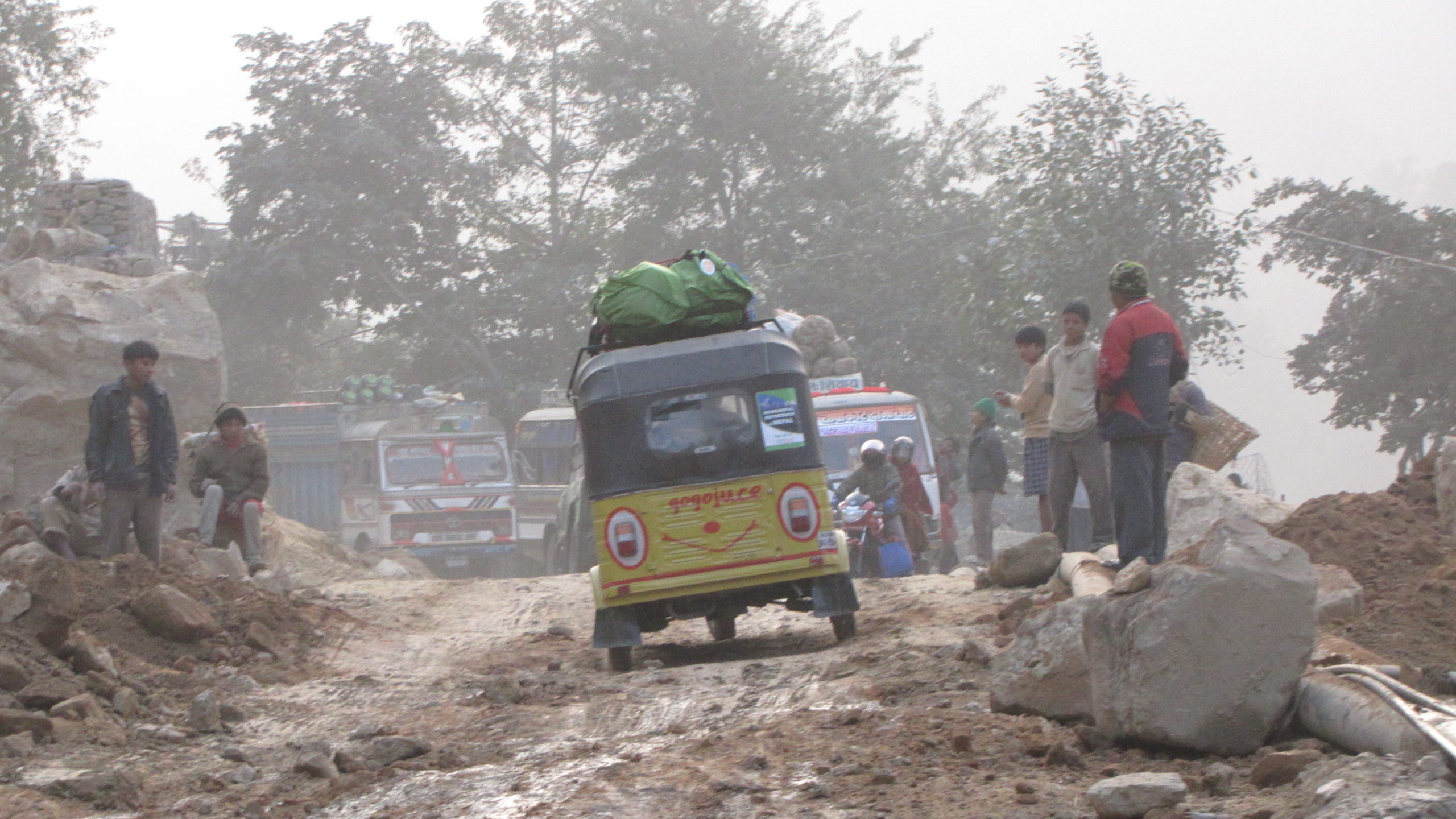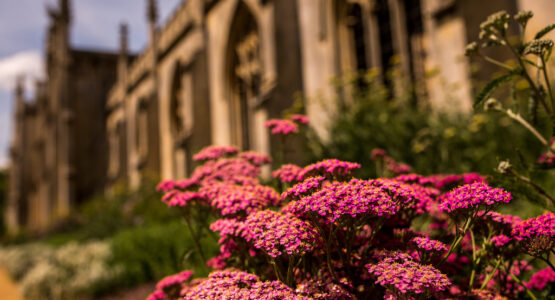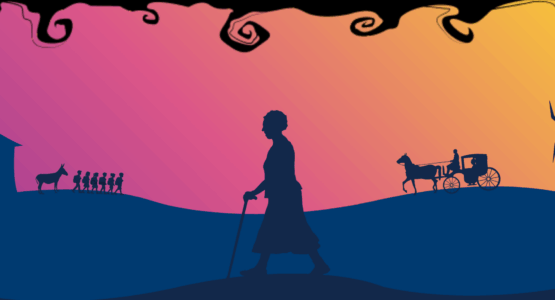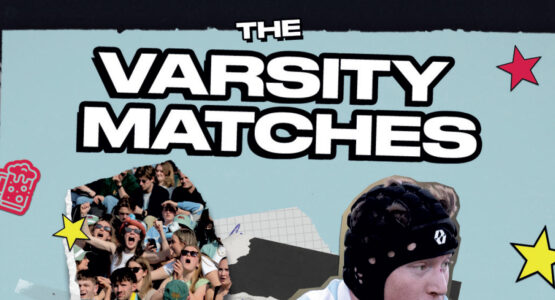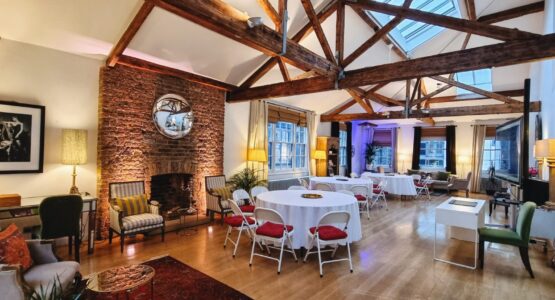Joanne Flitcroft (1989) studied Law at St John’s and went on to spend nearly 16 years at AstraZeneca as Senior Council before founding and directing her own legal consultancy, Opallios Limited. Alongside practicing law, Joanne has a passion for travel and her charity work has taken her on some wild adventures all over the world.
I arrived at St John’s in 1989, the first person in my family to go to university. I had studied history and languages at school, but unfortunately my school did not offer the opportunity to study classics, the subject which I had a particular interest in. At that time Latin and Greek A Level were a requirement for future study of classical languages and so it was with excitement and some trepidation that I began my studies in Law, with Roman law being a particular favourite. Although at this stage I was not at all well-travelled, my time at St John’s proved formative in developing my sense of curiosity about the world. It gave me a wonderful platform from which to build my future career and fulfill my academic and travel interests.
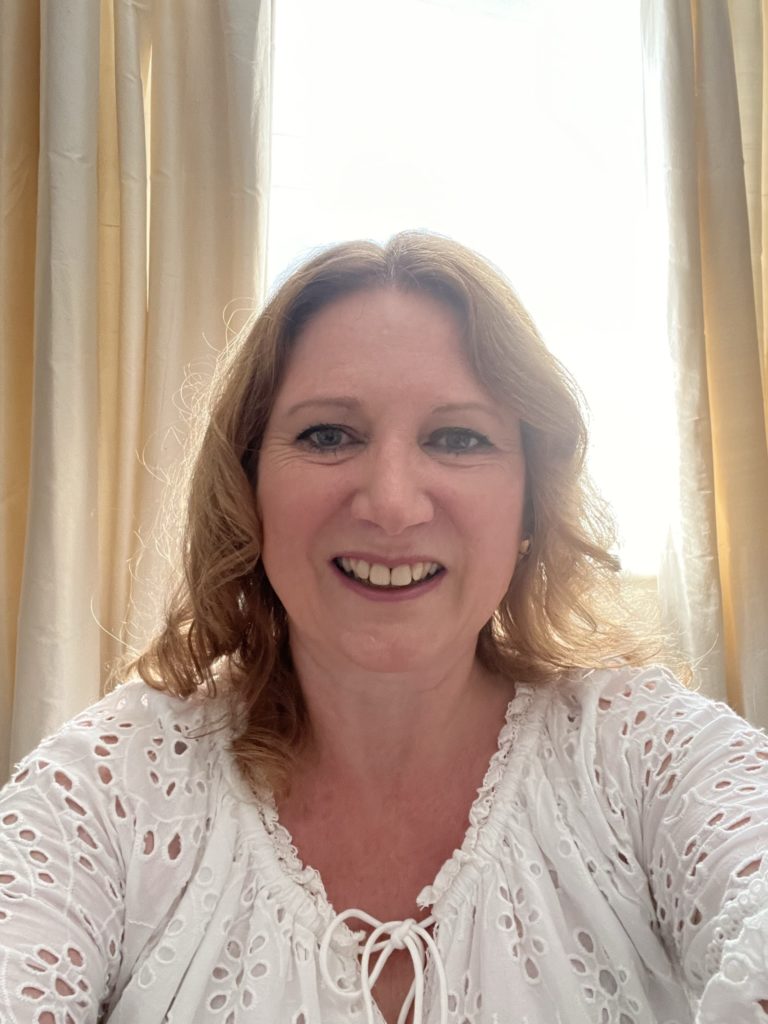
Fast forward several decades and I completed an MA in Classics in 2021, have taught Latin as part of the Classics for All scheme and have been fortunate enough to travel to all seven continents. This happened in parallel to my legal career which I began as a trainee in the City, where I realised fairly quicky that life in private practice was not for me. Upon qualification I soon moved ‘in-house’ where I worked for a US cinema company negotiating multi-national contracts – not selling popcorn (although the company induction involved working in one of the cinemas for an evening)! When an opportunity to work for AstraZeneca presented itself, I moved into the area of pharmaceutical law and for the next 16 years supported the delivery of therapeutic products to patients.
I travelled to several countries with work, but also used the generous holiday allowance to satisfy my ever-increasing wanderlust. In 2008, seeking a different kind of holiday, I decided to enter a charity rally raising money for Water Aid, Send a Cow and other charities supporting projects in West Africa. This involved driving from Hyde Park to Cameroon. However, this was a car rally with a difference. The rules were clear: the vehicle had to be completely unsuitable for the terrain, no more than a one-litre engine, no GPS, no set route and no logistical support. Having persuaded four friends to join me on the trip, we bought two old Ford Fiestas, several spare tyres and two batteries, and on 18 July 2008 we set off from Hyde Park.
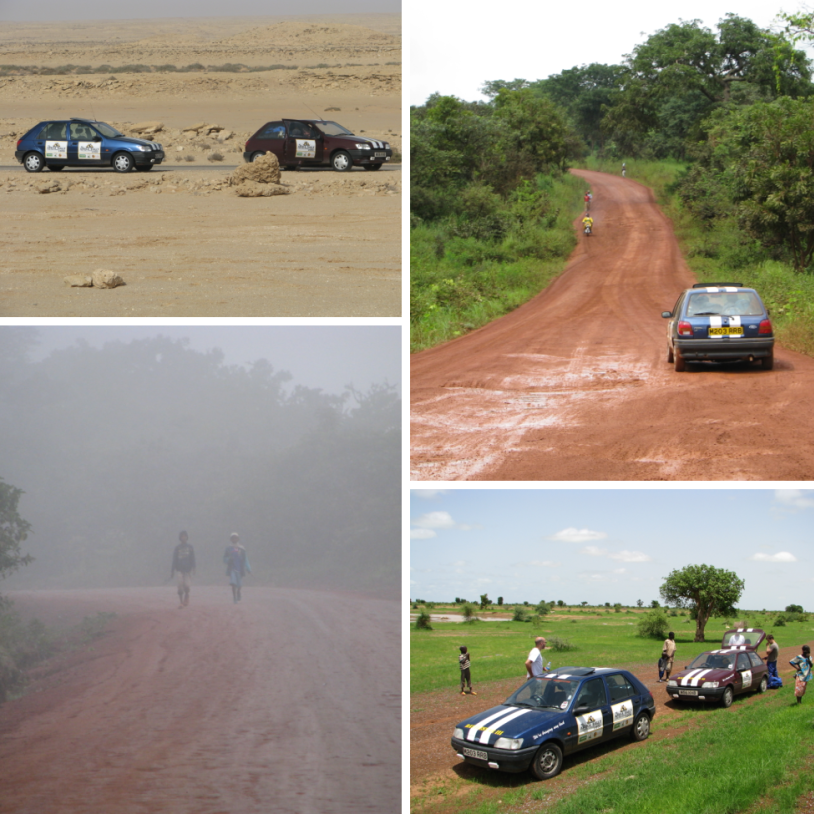
We had decided in advance that we would travel through France and Spain to take the ferry from Algeciras to Morocco. From there we crossed the Western Sahara into Mauritania via a live land mine field. Onwards through Mali, Burkina Faso, Niger and Nigeria before arriving in Kribi in Cameroon on 6 August 2008. We were stopped by a variety of police, traffic police and military officials over 100 times, and despite persistent efforts and being faced with many AK47s we avoided paying any bribes or fines. Although such a trip meant expecting the unexpected, we had a clear strategy for when we were stopped: sunglasses off, walk confidently, make eye contact, smile, provide a copy of copious amounts of paperwork and engage in conversation.
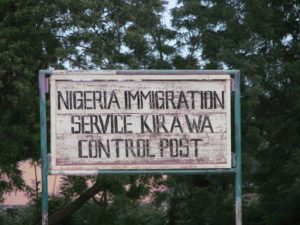
Looking back at my diary from the trip, here are a few extracts which hopefully capture the flavour of this particular adventure:
Border advice – stay on the rock, trust no-one, bear left at the upside down car.
25 July, crossing the border from Western Sahara into Mauritania
Picnicking at side of the road with 32 children.
– 27 July, Mali
Border guards friendly and curious; officials not used to foreign paperwork and carnets; heavy military presence due to conflict in the north and squads of heavily armed police in Hi-Luxes.
– 30 July, Niger
A customs officer in a white coat asked me if I had any pets or antiquities. When I replied “no, just 2 cars and 4 men”, she gave me a huge smile and burst out laughing.
– 1 August, Nigeria
Crossing into Cameroon was via a dried out river bed surrounded by children as we pushed the cars up the steep bank.
– 2 August
Great earth road for a long way…Bought tomato paste tin in Garoua for fixing exhaust….stopped by road safety official who wanted to see our warning triangles and fire extinguishers which we had packed for our drive through France… another fine avoided.
– 5 August, from Ngaoundere to Abong Mbang
Manifolds in cars steadily becoming worse and worse and starting to poison the team.
– 6 August
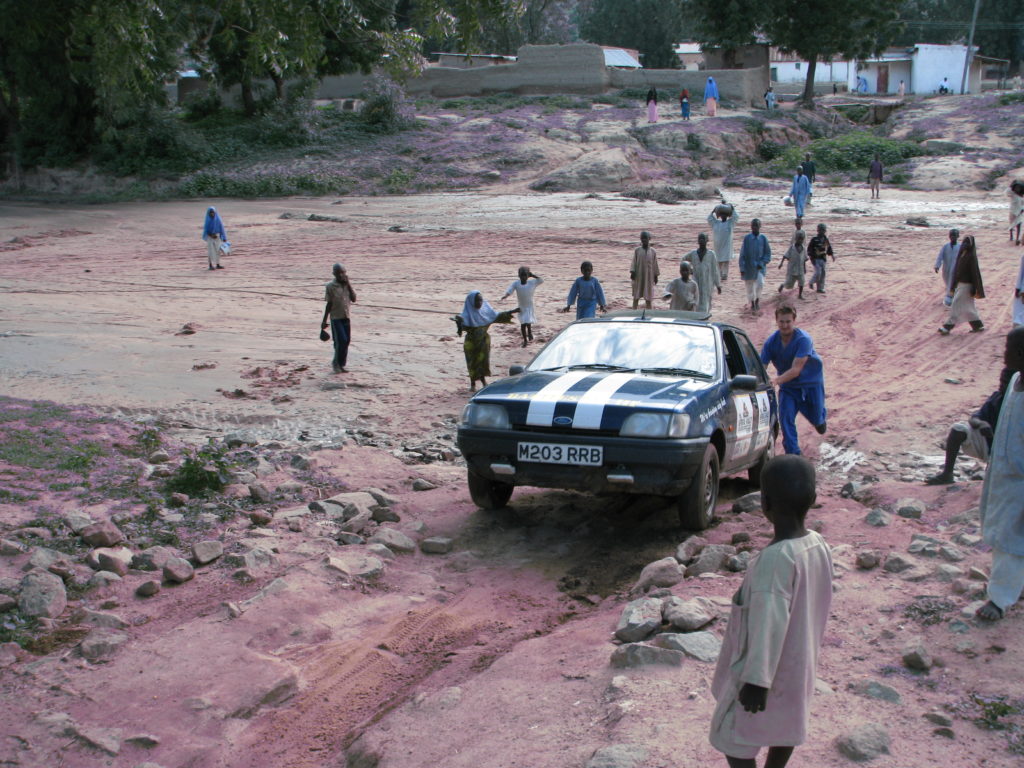
After successfully completing the rally, I travelled more conventionally for a couple of years until in 2010 I decided to enter the Rickshaw Run, a charity rally from Pokhara, Nepal to Kochi, India. For this challenge we raised money for Mercy corps and Maiti Nepal. My teammate and I were given the auto-rickshaw in Nepal and set off on New Year’s Day 2010, once more with no set route or assistance.
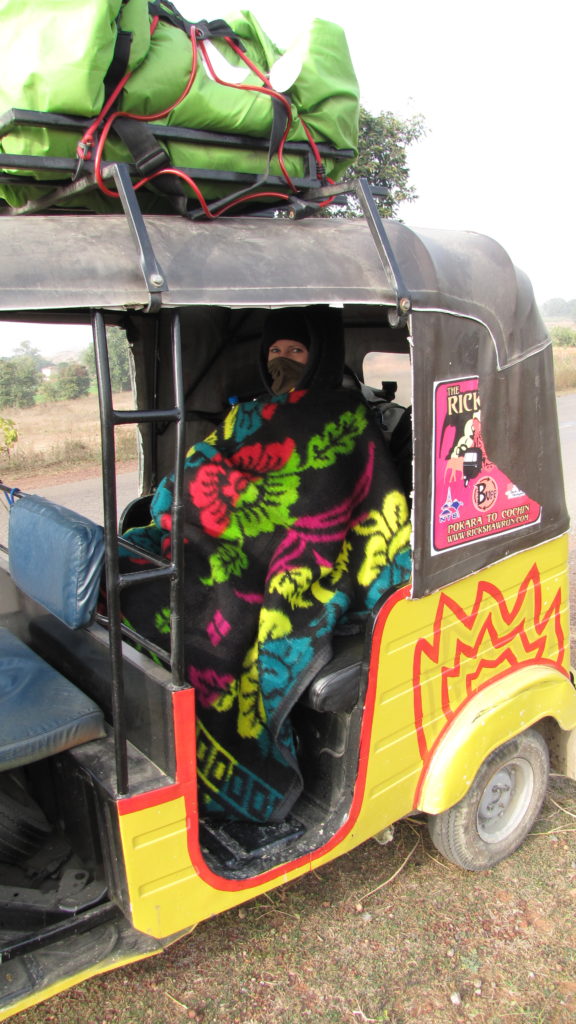
These three wheeled contraptions, which are less powerful than a lawnmower, are completely unsuitable for heading off through mountains and Indian highways but that is what we did, covering a distance of 2,243 miles in two weeks. It was an incredible experience but not for the fainthearted. Unlike a car rally, there was no opportunity to relax: if you are not driving it is extremely hard to do anything in the back other than hang on and, if there are tight bends, the passenger needs to shift weight to counterbalance the rickshaw’s natural tendency to topple over. Frequent potholes bounce both driver and passenger into the air and this coupled with tractors stopping in the middle of the road, coaches driving on the wrong side of the road through small densely packed villages, animals, children, cycles, cycle rickshaws and trucks make it a heady mix. As one of the many road safety signs informed us ‘Danger creeps where safety sleeps’. Our safe arrival was in part due to the many locals who stopped and insisted on helping us with repairs, the school where we stopped to ask for directions and the passengers who commandeered our taxi services along the way.
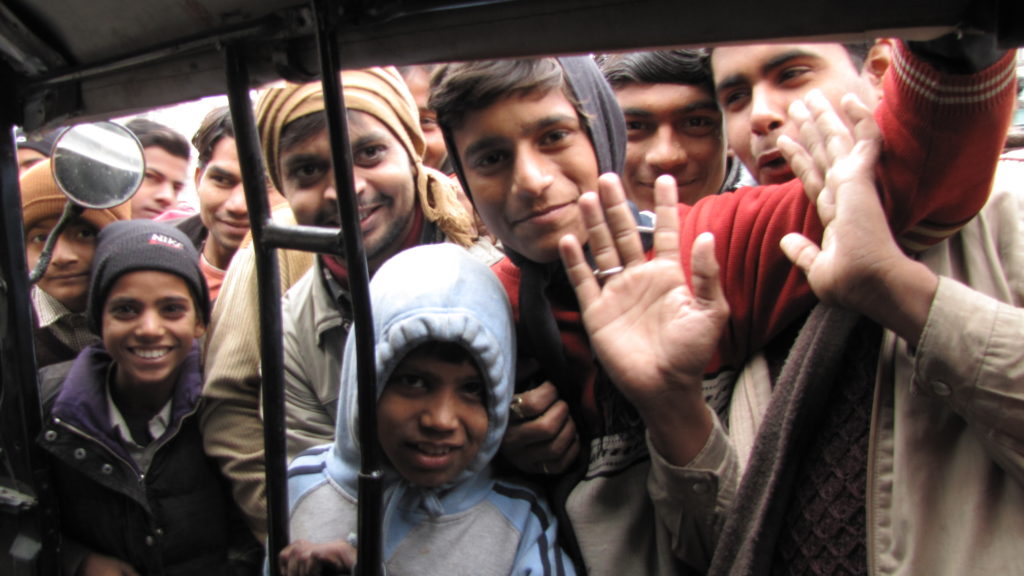
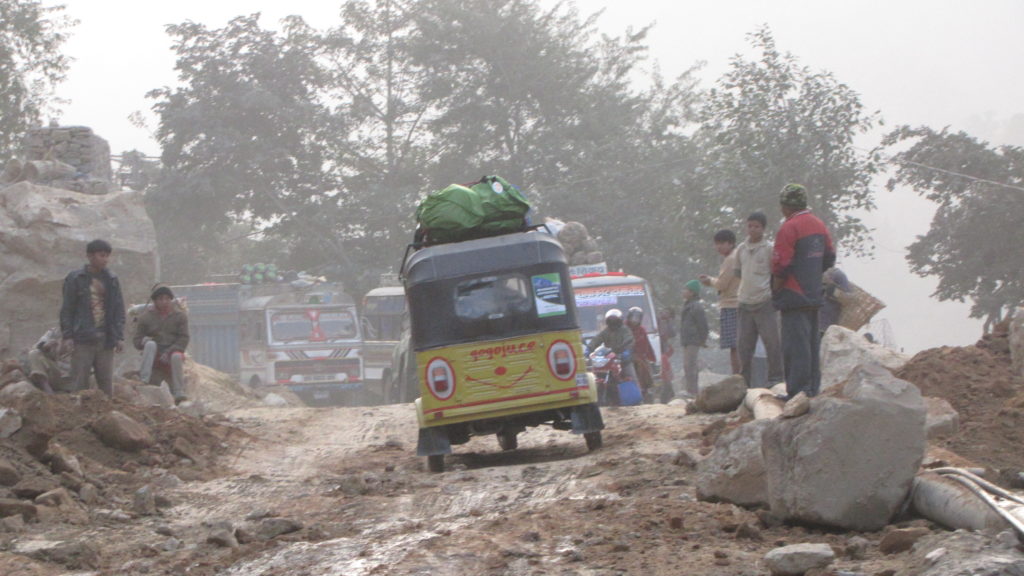
Dealing with the unexpected is a feature of many journeys and the unexpected came into sharp relief the following year when I was diagnosed with cancer. I was very lucky and made a full recovery. My diagnosis was made simply because I had private healthcare through my employment at AstraZeneca. Many others are not so fortunate and in 2012 I bought an imported auto-rickshaw and set off on a fundraising trip around the UK with two friends to raise funds for Prevent Breast Cancer. Following our encounters with the army at Catterick Barracks, the Chancellor in Downing Street and several local radio interviews, it was time to hang up our pink boiler suits.
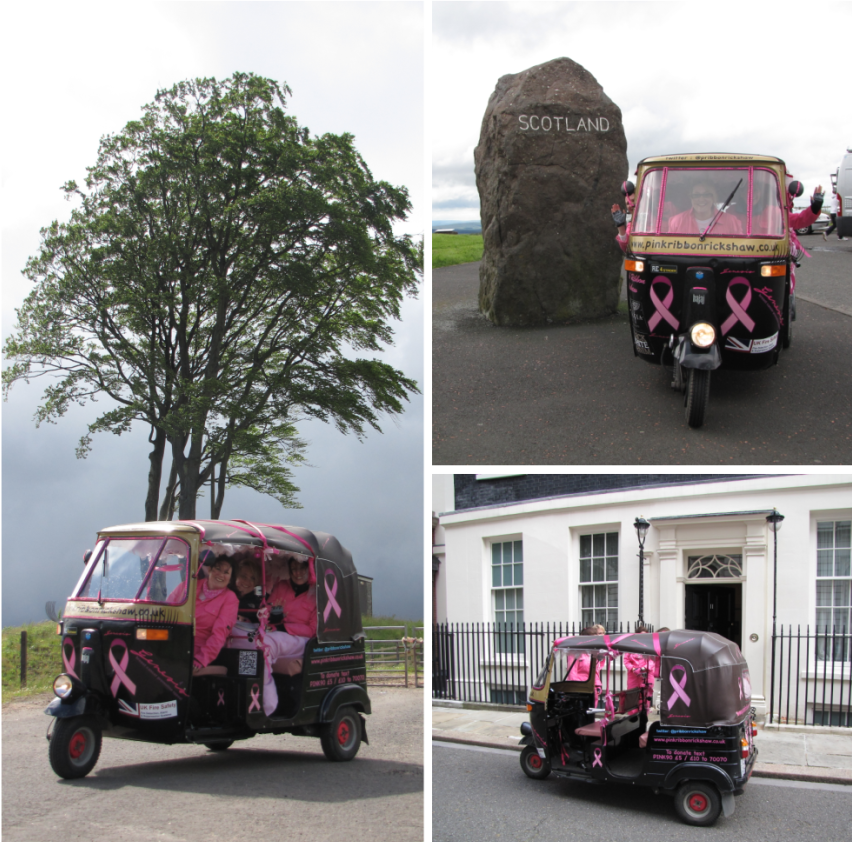
After leaving AstraZeneca in 2016, I set up a legal consultancy business working with life sciences companies. This has enabled me to take my involvement with charities in another direction. I became a NED of the British Society of Gastroenterology, a governor at Edge Hill University and a governor at a state school in Warrington where I also taught Latin to groups of 13-year-olds as part of the Classics for All Scheme, providing access to the study of classics and widening educational opportunities. I believe in the transformational nature of education to bring about change in people’s lives and this has brought me full circle: I am passionate about lifelong learning and am about to begin doctoral research into an aspect of Roman law and literature later this year.

